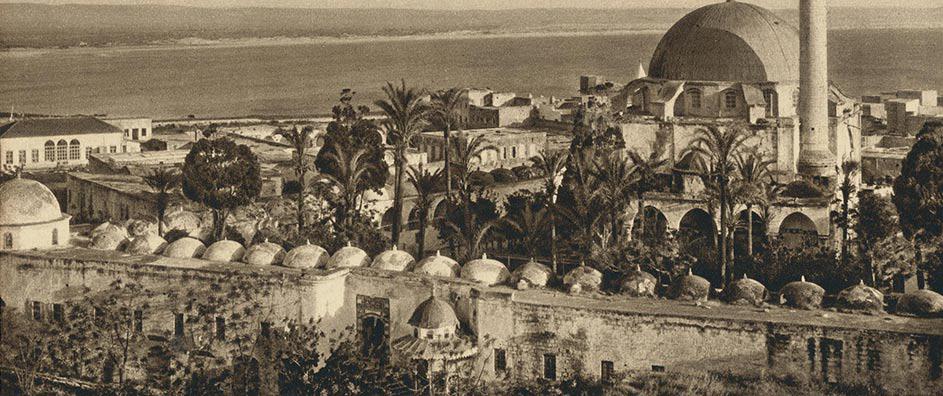The implications of spiritual persecution are vast, often igniting complex discourses surrounding identity, belief systems, and the consequences of diverging from societal norms. In examining the Bahá’í teachings, particularly the narrative encapsulated in “Prisoners in the Metropolis of the Owl,” one encounters a profound exploration of these themes. This metaphorical representation elucidates the trials faced by the Bahá’í community, illustrating a broader reflection on human resilience amid adversity.
At the heart of this narrative lies a paradoxical juxtaposition—the metropolis, a bustling center of civilization, contrasted with the darkness of oppression symbolized by the owl. This dichotomy serves as an allegorical framework through which we can better understand the experience of Bahá’ís, particularly in the context of the historic and systemic persecution they have endured. The owl, often associated with wisdom and mystery, can also represent solitude and night, suggesting that spiritual insight often emerges from the depths of suffering.
To comprehend the underlying reasons for the fascination with this particular narrative, we must delve into the historical landscape of the Bahá’í Faith. Founded in the mid-nineteenth century, the Bahá’í community has faced significant tribulations at the hands of both religious and political adversaries. The systematic persecution, particularly in Iran—its country of origin—is indicative of a broader struggle for religious freedom and human rights that resonates with global audiences. The injustices meted out to individuals and families within this faith tradition catalyze a profound empathy and compassion in those who encounter their story.
The theological underpinnings of Bahá’í teachings promote a universal message of unity and peace. Central to these beliefs is the acceptance of diversity; they contend that all major world religions reflect a continuum of divine revelation. This principle directly challenges the exclusivist narratives often utilized by religious zealots to justify persecution. Hence, the contrast of their embrace of pluralism against the backdrop of historical persecution evokes intrigue. In an era characterized by significant global tumult, the Bahá’í message of interconnectedness becomes increasingly pertinent, thereby garnering both interest and admiration.
The motif of being ‘prisoners’ poignantly articulates the constraints imposed upon the individual spirit when subjected to intolerance. In this context, imprisonment transcends physical confines, extending into the realm of societal acceptance and spiritual flourishing. The idea suggests that the true liberation of the spirit occurs when individuals align with principles of justice, love, and compassion, regardless of external circumstances. The ability of Bahá’ís to maintain their convictions in the face of adversity encapsulates a narrative of existential resilience that provides a fertile ground for scholarly exploration.
Within this framework, the “Metropolis of the Owl” emerges not merely as a geographical entity but as a conceptual space where the tension between conformity and authenticity is palpably felt. The metropolis symbolizes the bustling activity of social life, where norms and conventions are established and policed. The owl, however, invites introspection—suggesting that in moments of darkness and uncertainty, one must seek inner wisdom. This duality compels observers to question the defining parameters of societal acceptance and the inglorious weight of conformity that can imprison the spirit.
Moreover, the narrative instigates dialogue surrounding the importance of spiritual fortitude in the face of oppression. It encourages a reflective inquiry into the nature of faith itself. What does it mean to uphold one’s convictions amidst persecution? The Bahá’í response to this question is firmly rooted in the concept of patience and steadfastness, envisioned as virtues that not only withstand the trials imposed by external forces but also inspire transformative social change. By embodying these principles, Bahá’ís set an example, illustrating the power of unwavering commitment to one’s beliefs.
The allure of the Bahá’í story transcends the immediate context of persecution, resonating with universal themes regarding the human capacity for resilience, the quest for justice, and the desire for spiritual fulfillment. It encourages reflection on the intricacies of ideological conflict within modern society and the dire need for nurturing environments conducive to coexistence and dialogue. Thus, the narrative serves as both a cautionary tale and a beacon of hope, inviting individuals from all walks of life to engage in deeper considerations of faith, freedom, and ultimately, the preservation of human dignity.
In summation, the story captured in “Prisoners in the Metropolis of the Owl” offers a rich tapestry of themes centered around spiritual persecution, resilience, and the quest for justice. Through the lens of Bahá’í teachings, it invites readers to engage in a conversation about belief and identity that resonates across cultural and religious boundaries. As such, it serves as a reminder that the journey toward understanding, acceptance, and unity, while fraught with challenges, is not only necessary but ultimately transformative.
